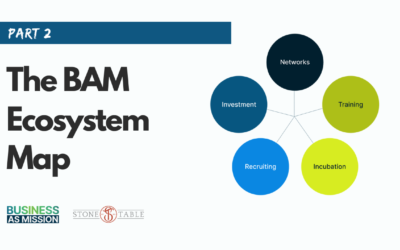A Way to Think About Your Job that Just Might Change Everything

I hated my food touching when I was a kid.
Ok, perhaps I should be completely forthright. I [currently, right now, as a grown adult] still hate [active, present tense] when my food touches on my plate.
You know, like when the juice from your green beans seeps into your mashed potatoes. That’s wrong. Disgusting. Even as I sit here typing this sentence, I’m fighting my gag reflex.
Those of you who stir together the items on your plate like you’re performing some kind of 8th grade science experiment claiming “it’s all going to the same place anyway” need psychological intervention. At best, you need to eat at a table where I am not sitting.
That’s why I love those elementary school lunch trays. You know, the ones that have designated spaces for each of the different food items. A big rectangle for your salisbury steak, a smaller square for your mashed potatoes, a little circle for your peaches, and another square with an inset circle for your milk carton. This is how all food should be served in an advanced civilization.
And while these partitioned trays are perfect for the school lunchroom, they’re a horrible analogy for how we think about our Christian lives. And yet the majority of Western Evangelicals seem to have embraced the idea that certain partitions of our lives are sacred and other partitions are secular.
The Sacred/Secular Divide
This is actually a modern form of ancient gnosticism. Gnostics believed that spirit was good and matter was evil, and this partitioning of life into sacred and secular compartments is a form of heresy the Church has been fighting since the first century. We might say it like this:
I work for a CPA firm, that’s my secular job. But I volunteer in Kids’ Church on Sundays, that’s my ministry.
Or…
I run a construction company by day, but that’s just my secular work. I lead a small group at my church and that is my real ministry.
Or…
I manage a retail store, that’s my secular job. But I sing on the worship team every other Sunday. That’s my sacred calling.
There’s an assumed partitioning in the Christian life that defines the work we do for the church as sacred and the work we do in the marketplace is secular. This is simply bad theology, an “abbreviation” of the full redemption narrative of the gospel.
The Whole Gospel
Good “work theology” starts with reminding ourselves of the whole Gospel. Take a look at Colossians 1:19-20:
“For God in all his fullness was pleased to live in Christ, and through him God reconciled everything to himself. He made peace with everything in heaven and on earth by means of Christ’s blood on the cross.”(emphasis mine)
Through Jesus, God reconciled and made peace with all things. There is not one aspect of our lives that the Gospel does not redeem. Jesus didn’t just come to resurrect the “sacred partitions” of my life, He came to redeem the whole lunch tray!
The Gospel redeems all things, including the work of your hands.
In Christ, there is no divide between the sacred and secular. Your job, whether you’re a teacher, a software engineer, a wall street stockbroker, a builder, an entrepreneur, an attorney (yes, even an evil attorney!), a stay at home mom, blue collar, white collar, esteemed or humble, if you’re a brain surgeon or you sweep the floors at the local Taco Bell…reconciled to Christ, your work is sacred!
Have you ever thought about your everyday job like that?
It’s time.


